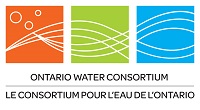Develop new sensors
The Sensors node enables the design, prototyping and validation of sensors to support innovative technologies used to detect pathogens, chemicals and elemental contamination in water.
SOWC Supported Facilities
Micro and Nano System Laboratory
McMaster University’s Micro and Nano System Laboratory (MNSL) includes equipment that augments the infrastructure already in place at McMaster for the development of environmental sensing technologies. An additional facility for development of elemental sensing technologies is located at the University of Waterloo.
- Fabrication of sensors from ~100’s of nm in size to several mm’s
- Integration and assembly of metals, semi-conductors and polymers on a single system
- Ability to print biological material and integrate it with sensors
- Processing and quantitative analysis of surfaces
- Ability to grow and characterize nanolayers and nanowires
- Measurement of surface energy, electrical, optical, chemical and reliability properties.



Karanassios Laboratory
The Karanassios Laboratory at University of Waterloo develops and tests miniaturized, micro- and nano- instruments based on micro-plasmas designed around micro-fluidics channels. Portable, battery-operated micro-plasmas are coupled with optics and photonics technologies for chemical analysis in the field. Such instruments are fabricated in-house and are designed to enable on-site analysis. An additional component of the research is on nano-materials as emerging contaminants, particularly in ground-water, and for this the lab hosts an ICP-MS as part of the SOWC.
In addition to the equipment and facility capacity, the Sensors node has technical support and research knowledge capacity available to design, prototype and test all types of sensors and sensing systems. Partners working with the Sensors node will have access to expertise in electrical, electrochemical, optical and chemical sensing, as well as integration of sensors and sub components into sensing systems.
Other Partner Institution Facilities
Centre for Emerging Device Technologies
The Centre for Emerging Device Technologies (CEDT) is the central device fabrication facility at McMaster University. The CEDT has extensive facilities for novel materials growth (including epitaxial growth of semiconductors and ion implantation) and the fabrication of optical, electrical, mechanical, and microfluidic devices for diverse telecommunications, sensing, biomedical and energy applications. Three full-time staff members operate and maintain equipment located in three laboratory facilities. Industrial collaborations take place frequently and new initiatives are always welcome.
Related articles
SOWC’s Collaboration with McMaster is Pushing Sensor Technology Forward
SOWC Facilities Draw Attention From U.S. Delegation
SOWC Researcher Profile – Dr. Vassili Karanassios

